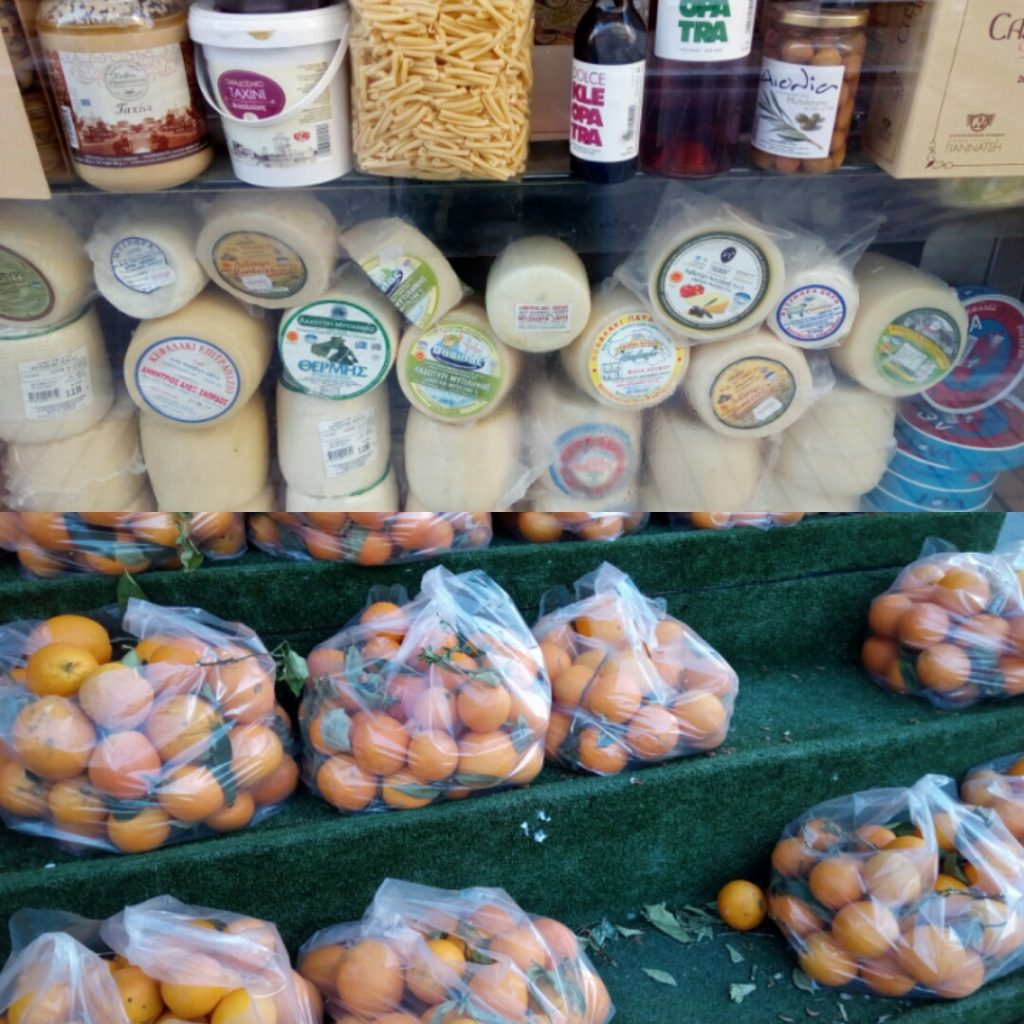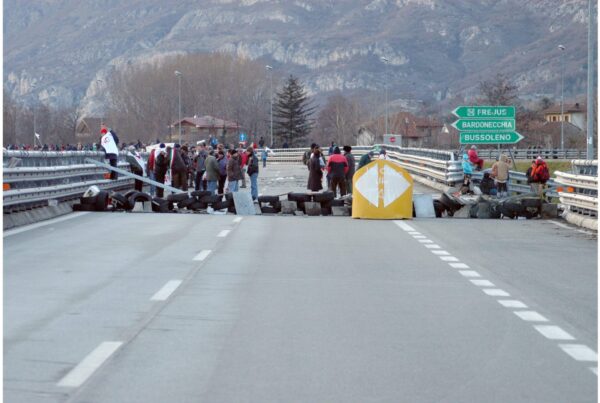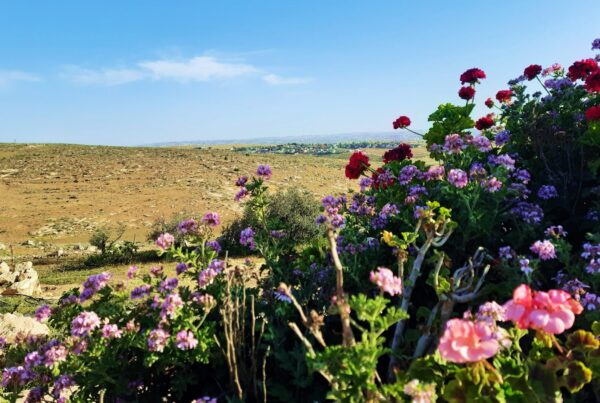By Marula Tsagkari *
At the same time that the degrowth movement was gaining ground in the public discourse, Greece, was living the most severe economic recession since the Second World War. In the Chinese language the word crisis is represented by two symbols. The first means danger and, the second, opportunity.
We must look for man wherever we can find him. When on his way to Thebes Oedipus encountered the Sphinx, his answer to its riddle was: ‘Man’. That simple word destroyed the monster. We have many monsters to destroy. Let us think of the answer of Oedipus.
These words are from the Greek Poet Giorgos Seferis’ speech at the Nobel Banquet. Today they are more relevant than ever, as humanity fights against a ‘contemporary Sphinx’: the utopian ideal of an infinite growth defined by economic indicators and theories. This promethean way of living has sustained the idea that increased wealth was the ‘one pill to cure them all.’
However, in the past years, it has become more and more obvious that resources are finite and that the planet cannot sustain continued growth. And just like that, the utopian ideal started falling apart. The latest economic crisis showed the cruelest face of the unsustainable capitalistic system. It has become clear now, more than ever, that we live in an absurd world, that despite increased wealth, unemployment and poverty are increasing, conflicts are continuing, and inequality keeps rising. In this context, the idea of degrowth points to an alternative route, and establishes a vocabulary to describe a new world based on solidarity and cooperation.

Source: Marula Tsagkari
While the idea of degrowth is rather old (seeds can be found in the 1970s), the movement has only started to gain ground in recent years, especially in the echoes of the recent economic crisis. The Conferences in Leipzig in 2014 and in Budapest in 2016 brought together thousands of scientists and citizens with different backgrounds and ideologies including sufficiency-orientated critics of civilization, reformists, pacifist idealists, and libertarian leftists. However, they all seem to share the common belief that the current economic model is unsustainable, as well as a vision of a different way of living.
Perhaps because the movement found its voice through people’s dissatisfaction following economic crisis, many confuse degrowth with the idea of ‘unsustainable degrowth’, which is often synonymous with economic recession and social instability. On the contrary, the core of ‘sustainable degrowth’ is the concept of ‘progress’, but a progress not related to an increase of the GDP, large-scale production, or over-consumption. As Tim Jackson puts it, ‘Every society clings to a myth by which it lives. Ours is the myth of economic growth’. And exactly this is the myth that the degrowth movement seeks to demystify.
Since then, the country has been trapped in a vicious cycle of bailout programs and austerity measures imposed by the International Monetary Fund (IMF), under the watchful eye of the German government. These measures came with many costs. The austerity plans included strict public cuts (in health and education), measures in the private sector (massive dismissals), increased taxes, and reduced pensions. These decisions increased political instability and had a severe social cost. Unemployment was last reported to be at 23%, and 45.7% among young people (January 2017); while there are more than 20,000 homeless people (February 2016). Thus, the initial economic crisis has been transformed into a multifaceted social, political, and environmental crisis—what Geels calls a ‘triple crisis’, each of which is connected to the other.
In Greece, these interactions are now becoming clear. There was an increase in the number of smog events due to the increased price of oil, while it a rapid increase in illegal hunting and logging related to sharp budget cuts in conservation was also observed.
In the Chinese language the word crisis is represented by two symbols. The first means danger and, the second, opportunity. It is true that economic crises are complex phenomena, and a form of exogenous shock in the society. On the other hand, they are also an opportunity to challenge the current way of thinking and they can open a door to a profound change.
As some supporters of degrowth have claimed, this new era will be born from the ashes of the present unsustainable system, or more specifically, active social movements can gradually pave the way for a bigger change. The work of Giorgos Kallis, Francois Schneider, and Joan Martinez-Alier offers a useful starting point. They claim that a crisis can be seen as an opportunity for alternative discourses and the seeds can be found in community-based initiatives that can form the pieces that, in the future, will fit into a bigger puzzle.
This idea triggered my interest, and I decided to focus my research on the question of a sustainable degrowth transition in Greece, and to what extent it could result from this increased civic engagement. And taking this as a starting point, the idea I want to put forward is that in Greece, despite the crisis (οr because of the crisis) one can find the seeds that can support the idea of degrowth.
The early seeds of a degrowth economy in Greece
Civic engagement was rather underdeveloped in Greece before the economic crisis. For instance, in 2005, the Civicus Survey pointed out that Greek civil society is anemic, as it was dominated by political parties and the family. However, in the wake of the economic crisis, civic activism appeared as a spontaneous response to increased social inequality and poverty. Aside from the increased number of NGOs, new, informal groups based on solidarity erupted and formed grassroots movements and networks. In times of crisis an ‘alternative, parallel’ economy was born.
But it would be a mistake to assume that this new economy came out of nowhere. Greece is a country with a strong sense of community and a culture of self-organization. The pharmacist, the butcher, and the fisherman of the neighborhood are integral figures of Greek culture. Everybody knows them and their stores are often a gathering point. Unfortunately, these small businesses are also the most harmed by the economic crisis and the austerity measures. Between 2008 and 2015, more than 20.000 small local businesses closed in Greece, according to the European Commission. As a response to the absence of local gathering points, and the loss of jobs, a number of social movements and cooperations emerged during the times of crisis.

Source: Marula Tsagari
What’s more, the idea of cooperation has always been an important element of Greek tradition. In fact, Greek cooperative traditions may be the oldest in Europe. The idea of self-organization can be found in ancient Greek times in the form of trade unions. Cooperatives were also present, in a more advanced form, in the Byzantine Empire. These consisted of unions of land or livestock owners into common production and management systems. In this period they were recognized by the legislation of Leo VI the Wise and achieved increased autonomy—becoming a vital part of the economy.
Cooperatives were also present during the Ottoman rule (1453- 1821) and had an important role during the national liberation war of 1821. During this period new cooperatives popped up in small villages, where small groups of producers known as ‘syntrofies’ (companies or friendships) decided to cooperate to avoid competition. In some cases they were even able to export their products to other European countries. After Greece became an independent country the cooperations remained active, working for the establishment of a democratic regime.
* Marula Tsagkari is a researcher, and environmental professional from Athens, Greece. Her research focuses on the areas of Environmental Politics, Policy and Justice especially in the European South. This is the first of a two-part post, originally published by Uneven Earth.






4 Comments